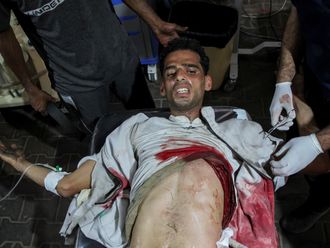President Michel Aoun is yet to comment on Saad Hariri’s resignation. Constitutionally, he is empowered to refuse it but this is highly unlikely since both Aoun and his Hezbollah allies are glad to see the end of Hariri. His decision to step down gives them a free hand to tailor-make Lebanese politics to their liking, ahead of the parliamentary elections set for May 2018. Although Hariri’s seats in Parliament dropped from 36 to 26 during the elections of 2009, he still commands strong influence within the Lebanese Chamber — but not enough to drown any future Iran-backed legislation, given that in the present Chamber, Hezbollah and Amal combined have 33 out of 128 seats.
Hariri will likely boycott any future cabinet, which will be a blessing in disguise for Hezbollah, enabling them to fill it with friendly independents or allies from the March 8 coalition. No names have yet surfaced on who might replace him as prime minister, but sources in Beirut believe Aoun will call on an independent, rather than an outspoken ally of Tehran. A permanent candidate for the post is former prime minister Najib Mikati, who is on good terms with Riyadh. The other former premier, Tammam Salam, has few chances of returning to power, accused by many of failing to protect Lebanese soldiers who were abducted and killed by Daesh.












